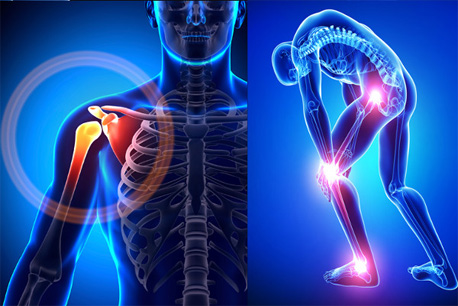Orthopedics Surgery
 Modern surgery has developed to such an extent that the body of knowledge and technical skills required have led to surgeons specialising in particular areas, usually an anatomical area of the body or occasionally in a particular technique or type of patient.
Modern surgery has developed to such an extent that the body of knowledge and technical skills required have led to surgeons specialising in particular areas, usually an anatomical area of the body or occasionally in a particular technique or type of patient.
There are ten surgical specialties and this briefing covers orthopedics surgery.
What does orthopedic surgery cover?
Orthopedics surgery is a specialty dealing with acute injuries, congenital and acquired disorders and chronic arthritic or overuse conditions of the bones, joints and their associated soft tissues, including ligaments, nerves and muscles.
Most consultants work alongside general surgeons in emergency trauma dealing with bony and soft tissue injuries admitted through their local A & E Departments. The vast majority also have a specialist interest in a particular orthopedics condition including the following:
• Joint reconstruction
• Particular anatomical region (eg arm)
• Spine (alongside neurosurgeons)
• Bone tumors surgery
• Rheumatoid surgery
• Sport surgery
• Complex trauma surgery
Pediatric orthopedics requires different fracture treatment due to growing bones and corrective treatment for childhood deformities.
Main operations
Among the main procedures undertaken by orthopedic surgeons are:
• Joint arthoscopy – a minimally invasive technique which involves inserting probes into the joint to diagnose and repair damaged joint tissue (eg to torn ligaments or floating cartilage).
• Fracture repair – a whole series of techniques are used depending on type, severity and location of fracture to ensure that bones are stable, heal correctly and patient retains function. This can include permanent pins and plates, immobilization, use of external pinning and frames.
• Arthroplasty – the replacement of whole joints, usually due to osteo- and rheumatoid arthritis. Hip and knee replacements are the most common operations.
• General repair procedures on damaged muscle or tendon.
• Corrective surgery – procedures aimed at correcting problems of anatomical alignment which either limit function or would cause long-term problems if left.
Developments
Work into new joint replacement techniques include resurfacing of the hip and shoulder, which leaves patients with much more of their original bone than a total replacement. There is also work into different materials for replacements (including metals, plastics and ceramics).
Biological repair is an area of much research, such as cartilage transplantation or using material grown from stem cells to replace damaged joint tissue (eg tendons and ligament).
Computer-aided navigation enables 3D mapping of a joint and enables greater accuracy for incisions – more research is needed to see if this results in significant improvements for patients.
Training Opportunities for International Medical Graduates
As a global leader in the field of surgical education, training, research and standards, the RCS works with our members and a range of international partners to support the training and professional development of International Medical Graduates (IMGs) all over the world.
We operate the following programmes, which provide opportunities for IMGs to pursue further training in the UK:
• International Surgical Training Programme (ISTP)
• GMC Sponsorship Scheme (GMC-SS) and the
• Senior Clinical Fellowship Scheme
Orthopedic PG Diploma-A
This course has been produced in consultation with clinical specialists to ensure that it provides the appropriate content for orthopedic trainees and advanced therapists to progress in orthopedics in the current climate. Not only will you have input from our own, highly experienced staff, you will also be taught by clinical experts who are in current practice.
Key lectures and case discussion sessions will be delivered on-campus days by the consultant faculty, who will also guide the distance learning element of the course. This course will also give you access to expertise in clinical assessment, rehabilitation, spinal pathology and biomechanics as well as specialist surgical skills
Modules
• Evidence Based Medicine
• Analysis and Interpretation of Clinical Data
• Clinical Medicine
• Orthopedics
• Case Investigations in Molecular Medicine
• Assessment and Consultation in Clinical Settings
• Therapeutic Advances in Orthopedics
• Research Dissertation
Orthopedics
Exploration of the current understanding of orthopedic conditions Specialist seminars delivered during teaching blocks will be presented covering the current state of the art of topics in orthopedics, such as:
• Osteoarthritis and rheumatoid arthritis
• Spinal Disc degeneration
• Inherited and acquired neuromuscular disorders (including myopathy)
• Osteoporosis
• Metabolic bone disease
• Tendon and ligament damage and repair
• Cartilage damage and repair
Research Dissertation
On completion of the taught modules, students will have developed their knowledge base and attained a high level of competence in the application, analysis and evaluation of theory and practice. This knowledge and critical skills will have been assessed in all previous assignments, thereby providing students with the opportunity to undertake a research project relevant to their taught programme of study.
Therapeutic Advances in Orthopedics
Reviews current guidelines and the evidence base in the therapeutic management of orthopedics disorders, and explores potential new therapies. Specific areas explored include:
• Diagnosis, treatment and management of specific orthopaedic conditions in a clinical setting
• Integrated healthcare approaches to diagnosing and treating orthopedics conditions
PG Orthopaedic Courses in UK
• Msc Trauma & Orthopaedics
• Msc Motion Analysis
• Msc Orthopaedic Science
• Msc Orthopaedic and rehabilitation Technology
• Mch Orthopaedic Surgery
